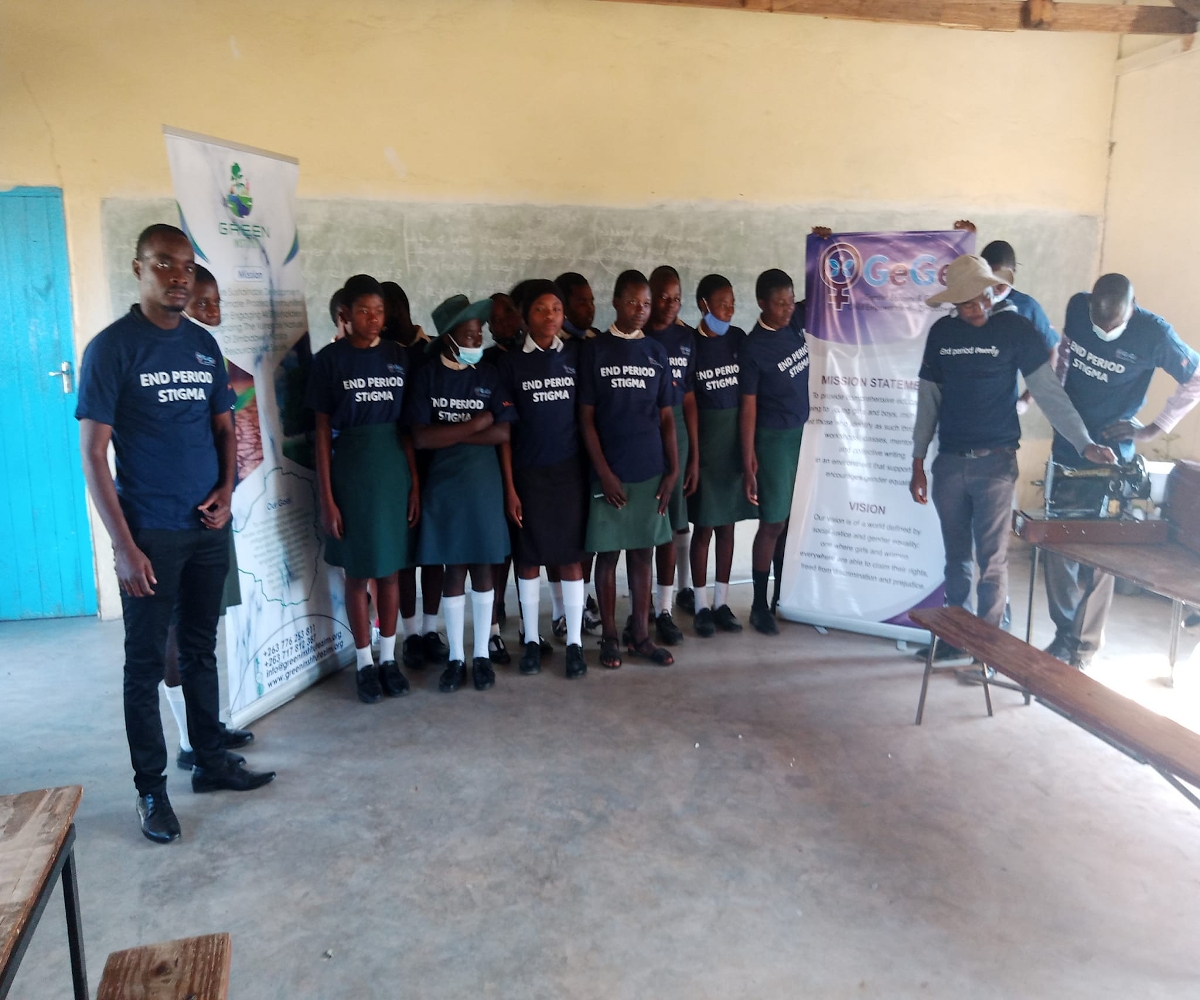Menstrual Hygiene Campaign
Green Institute embarked on a menstrual hygiene campaign which opened up space for girls and young women to speak out issues which are affecting them .During the campaign we were also able to engage the local councilor and the community working group on health to be part of the discussions. Girls mentioned that access to sanitary pads was a challenge forcing some girls to absent themselves to school. Some of them were suing rugs and cow-dung which have critical health complications .Some girls even mentioned that they are forced into relationships so that they can afford a safe period .Also to note is the lack of enough information on Menstrual Hygiene which in our culture is viewed as something sacred. During the meetings Green Institute managed to distribute sanitary pads to 300 girls and is in the process of organizing a seminar on re-usable sanitary pads manufacturing. Lastly the girls through Green Institute agreed to petition the parliament to make a follow up on the 2020 Budget allocation which specifically highlighted that the government would provide free sanitary pads too school going girls but up to now nothing have materialized. With the help of our own Aunt we have established 10 girls clubs which provides a safe space to discuss issues affecting the sexual reproductive health.
Major Achievements
- Through the training of trainer’s workshop held the young people were capacitated in holding duty bearers accountable due increased knowledge and skills environmental accountability monitoring. The youth were enhanced capacity of to how to organize them in demanding environmental l accountability from local state and non-state institutions.
- The created whatsapp groups and serviced information centers raised and well-coordinated voices of the young women and men in climate change process. The platforms have also improved the participation of youth in community development initiatives and programs.
- The community dialogue meetings have improved the interaction between youth and local state and non-state actors.
- The AAGs managed to have regular interactions with local councils through presentations at full council meetings and other council meetings, and they engaged with traditional leaders, during community meetings articulating issues of concern and suggestions.
- Establishment of 120 sustainable beehives, for our beekeeping project
- 3 community gardens were established

